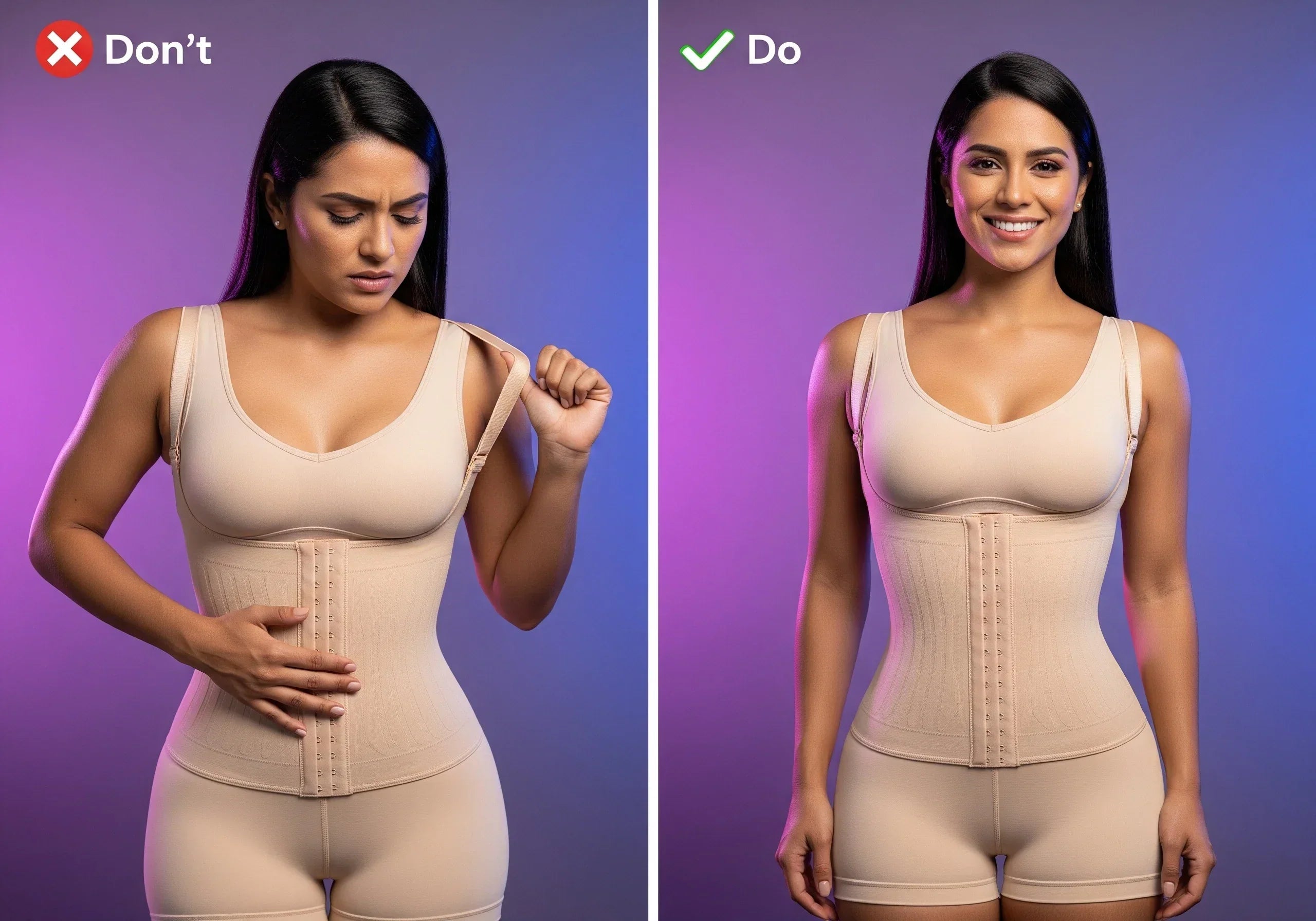Wearing a faja after surgery is crucial for shaping and healing, but many patients unknowingly make mistakes that can slow recovery or compromise results. In this article, we’ll cover the most common faja mistakes and how to avoid them so you can get the best outcome from your post-surgery garment.
Mistake 1: Not Wearing It Consistently
Skipping hours or days reduces compression, slows fat graft settling, and increases swelling. The solution is simple: wear your faja 24/7 during the first 3–6 weeks (except while showering) and rotate between at least two garments to ensure you're never without one.
Mistake 2: Choosing the Wrong Size
A faja that's too small can cause discomfort and circulation issues, while one that's too large provides ineffective compression. Always follow your surgeon's recommendations and use your body measurements—not clothing size—to find your perfect fit with our official size chart.
Mistake 3: Ignoring Stage Progression
Early-stage fajas are softer for healing. Skipping to high-compression garments too soon can harm tissues. Gradually transition from a Stage 1 faja to a Stage 2 faja as swelling decreases.z
Mistake 4: Poor Skin Care Under the Faja
Sweat and friction can cause irritation, rashes, or infections. To avoid this, use a soft cotton liner, hypoallergenic wipes for cleaning your skin, and make sure you wash your faja frequently.
Mistake 5: Ignoring Surgeon Guidance
Every recovery is unique. Following general advice without professional input can be risky. Always prioritize your surgeon's post-op instructions tailored to your specific procedure.
FAQs About Faja Wear
Can I adjust my faja if it feels uncomfortable?
Yes, but only slightly. Never force it if it causes pain or restricts breathing.
How long do I need to follow these rules?
Most guidelines apply during the first 6–12 weeks, depending on your surgery type.
Is it safe to sleep without a faja?
Early in recovery, it’s best to wear it even while sleeping unless your surgeon advises otherwise.
Conclusion
Avoiding these common mistakes can make a huge difference in your recovery. Consistent use, correct sizing, stage progression, and proper care are your keys to success.
Explore our full collection of Snatched-body fajas and recovery accessories to ensure a smooth, safe recovery. For wholesale inquiries, our official distributors are Cata1og.com and Catalog Mexico.


















